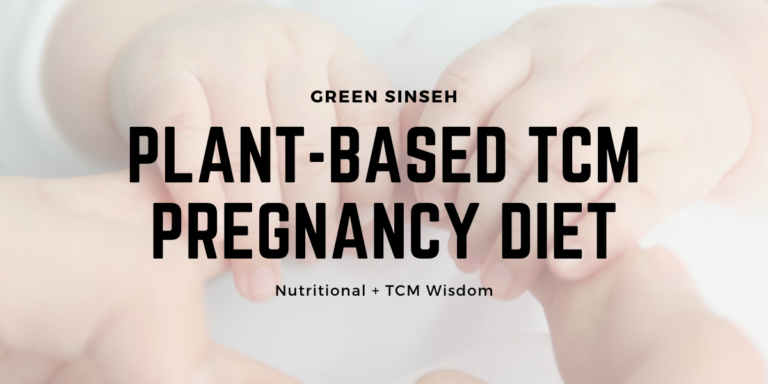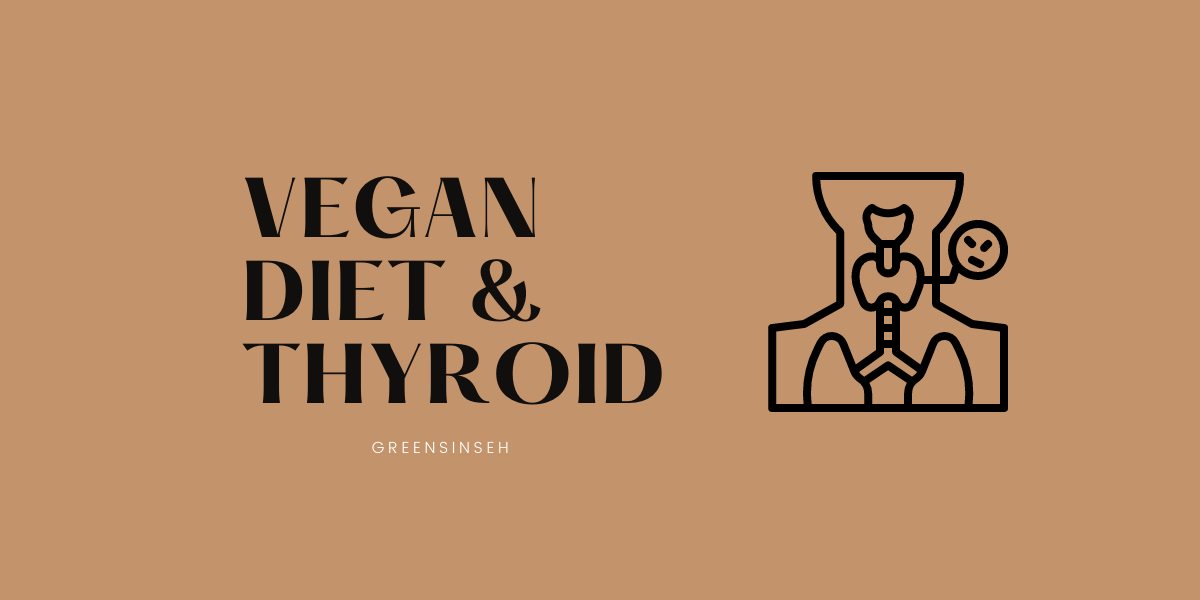Vegan Thyroid Diet
There is a growing awareness that a vegan diet decreases morbidity and mortality associated with a range of chronic diseases, such as thyroid diseases. However, there are concerns that vegetarian diets may be low in calcium, vitamin D, vitamin B12, and zinc [1]. Another critical nutrient is iodine which is found mainly in iodized salt, breads and dairy sources in the U.S. Since 2000 the U.S. population generally has demonstrated adequate iodine nutriture [2]. Vegetarians may consume less iodine than their omnivorous counterparts [3,4]. The American Dietetic Association recommends that those consuming vegetarian diets be cognizant of the need of iodine supplementation [1].
The most common cause of acquired hypothyroidism is autoimmune thyroiditis [5]. In almost all cases, anti-thyroid antibodies are identified. The incidence is increased in women, with increasing age and is less common in Blacks. While hypothyroidism may cause obesity, obesity may result in raised thyrotropin-stimulating hormone levels, partly due to a proinflammatory milieu and other endocrine derangements [6]. Vegetarians tend to have lower body mass index (BMI) than nonvegetarians [7,8] and in some studies, lower levels of inflammatory markers [9]. Experimental data indicate that vegetarian diets may be useful in treatment of autoimmune disease as rheumatoid arthritis [10].

Understanding Your Thyroid
In order to understand how your thyroid may be affecting your health, you must first understand how it works.
Thyroid hormones are responsible for powering all metabolic processes in our bodies:
- They help maintain constant temperature, which is why the hands and feet are always cold when the thyroid starts to slow down.
- They enable synthesis of protein for normal growth and repair, which is why women with long-standing thyroid deficiency are shorter.
- They help get rid of cellular waste products, which is why low thyroid function leads to accumulation of waste products and results in puffy skin on the face, arms, and thighs.
- They’re critical to immune function, which is why we start to get chronic colds and flus when thyroid function is low.
- They stimulate increased blood flow, which is why we get brain fog and cognitive impairment when low thyroid function slows blood flow to the brain.
- They stimulate oxygen consumption in the heart, liver, skeletal muscles, and kidneys. If you’ve ever spent much time at high altitudes where you didn’t get enough oxygen, you know the effect this has: You function poorly and feel weak, sick, and dizzy.
- And finally, they regulate energy production, which is why we get more and more tired when the thyroid isn’t working properly.
Your thyroid gland is regulated by your pituitary and hypothalamus, small endocrine glands in your brain. The hypothalamus produces thyrotropinreleasing hormone (TRH), which stimulates the pituitary to release thyroidstimulating hormone (TSH), which in turn stimulates your thyroid gland to produce four hormones in response to your body’s needs: T1 (monoiodotyrosine), T2 (diiodotyrosine), T3 (triiodothyronine), and T4 (thyroxine).
Vegan Thyroid Diet & Hypothyroidism
While the lack of iodine in the diet is the biggest risk factor for hypothyroidism worldwide, in the United States, obesity is a significant risk factor for hypothyroidism [11]. The relation between obesity and hypothyroidism appears to have several explanations. Obesity may result in raised Thyroid Stimulating Hormone [TSH] levels, partly due to a proinflammatory milieu and other endocrine derangements [12]. Persons with obesity are prone to develop autoimmune hypothyroidism, and even mild thyroid failure contributes to the progressive increase in body weight, which ultimately results in overt obesity [13]. So elevated TSH levels may be both the consequence and the cause of obesity [12].
Individuals on a vegan diet have a lower BMI on average [14] thus reducing their risk of thyorid issues or hypothyroidism. However, the lower risk of hypothyroidism among vegans exists, even after controlling for BMI and potential demographic confounders [15]. One study showed that following a vegan diet tended to be associated with a 22% reduced risk of hypothyroidism, although statistical significance was not quite attained [15].
Vegan Thyroid Diet & Hyperthyroidism
Hyperthyroidism is a prevalent condition with many causes, of which the most common is Graves’ disease [16]. Graves’ disease is an autoimmune disorder caused by antibodies directed against the thyrotropin receptor, resulting in excess synthesis and secretion of thyroid hormone [17]. The third National Health and Nutrition Examination Survey [NHANES III] showed the prevalence of hyperthyroidism in the United States to be 1.3% [18].
While the specifics of thyroid issues and vegan diet have not been extensively studied, observations by Trowel five decades ago indicated that for rural sub-Saharan Africans consuming a near-vegan diet, a number of autoimmune disorders were rare, or virtually unknown, including thyrotoxicosis and Hashimoto’s thyroiditis [19]. Data from the Adventist Health Study showed that a vegan diet reduced the risk of hyperthyroidism by 51% while a
vegetarian diet reduced the risk by 28% showing a dose response relationship [17].
The deal about Iodine - or risk?
Following a Plant-Based Diet Primary sources of iodine for a non-vegan are seafood and dairy products. Milk contains iodine due to the teat cleansers typically used in dairies. Since a plant-based diet does not include seafood or dairy, concern has been expressed that vegans may be more prone to iodine deficiency. Studies show that many vegans have very adequate iodine status, but some are deficient [20], therefore a vegan thyroid diet with optimal levels of nutrients is essential. The median, however, is mildly deficient.
In a study of vegans in the Boston area, median urinary iodine concentration of vegans was lower than for omnivores [78.5 μg/liter] but the range varied enormously [6.8 – 964.7 μg/ liter] [20]. However, it is reassuring that this was not associated with thyroid dysfunction.
Other studies of thyroid function in vegetarians and vegans are limited. Although serum TSH was generally normal in 101 British vegans, the geometric mean was 47% higher than for omnivores [21]. No thyroid function abnormalities were found in studies Swedish and Finnish vegans [22,23]. patients on a plant-based diet should be evaluated for iodine sufficiency if their diet seems to inadequate or if they eat foods grown in a region with low iodine content. A change in composition in the diet or supplements may be called for. Iodized salt can also be a good source of iodine.
Vegan Thyroid Diet - in a nutshell

The right kind of diet is extremely important if you have low thyroid function (our main focus in this article)— or even if you’re simply trying to optimize your thyroid health with a vegan diet. Because hypothyroidism prevents you from absorbing nutrients well, what you eat is especially critical when you have this condition. As my advice in vegan PCOS and Pregnancy diet, eating a balanced diet and taking supplements as needed, will go a long way toward helping rebuild your damaged metabolism.
Eat foods at its natural state
One simple rule to follow is to eat foods as close to their natural state as possible. In terms of carbohydrates, this means choosing whole grains and whole-grain products rather than refined carbohydrates. It’s also best to choose organic foods whenever possible; this will help you avoid all of those endocrine disrupting chemicals that non-organic produce is treated with.
Foods to avoid – or to take at moderation
There are a few foods that people with hypothyroidism should avoid, since they contain goitrogens, naturally occurring substances that suppress thyroid function, such as vegetables like cabbage, kale, rutabaga, turnips, and soybeans.
Cruciferous vegetables such as broccoli, cauliflower, and cabbage naturally release a compound called goitrin when they’re hydrolyzed or broken down. Goitrin can interfere with the synthesis of thyroid hormones. However, this is usually a concern only when coupled with an iodine deficiency . Importantly, heating cruciferous vegetables denatures much or all this potential goitrogenic effect [24]. Soy is another potential goitrogen.
You can find exhaustive lists of these foods online, but the truth is, balance is once again the key. These foods are generally very good for you, so if you eat them in moderation, you should be fine.
The problem with soy?
Another problem with soybeans, however, is that they can interfere with intestinal absorption of iodine, which will also impair thyroid function. In the 1950s, babies who were given soymilk because they were allergic to cow’s milk developed iodine deficiency. The problem was resolved by adding iodine to soymilk baby formulas. Numerous studies have found that consuming soy doesn’t cause hypothyroidism in people with adequate iodine stores [25,26,27]. Randomized controlled intervention trials in iodine- and iron-deficient populations have shown that providing iron along with iodine results in greater improvements in thyroid function and volume than providing iodine alone [28].
Timing of meals
Timing of meals is also important. If possible, you should eat smaller, more frequent meals rather than three big meals a day. This will help keep your blood sugar even and allow your metabolism to plug along at a steady pace. Plus, blood sugar swings can contribute to fatigue and brain fog, symptoms you’d probably rather avoid.

Vegan Thyroid Diet - Basic Guidelines
All of the ever-changing nutritional info out there can be confusing, and even once you understand the basics outlined above, you may wonder what an optimum vegan thyroid diet really is. Here are some basic dietary recommendations you should try to follow whenever possible:
- Restrict your consumption of refined carbohydrates and sugar.
- Eat complex (whole-grain) carbohydrates instead. This is important for both overall health and weight loss.
- Eat lots of fruits and vegetables and other high-fiber foods to keep your intestines clean and encourage the growth of friendly bacteria in your digestive tract.
- Eat moderate servings (roughly the size of your palm) of lean protein from plant sources.
- Nuts and beans are good plant sources of protein. Choose healthy sources of fat such as nuts, nut butters, avocados, olive oil, and other vegetable oils (including in salad dressings).
- Make sure to include plenty of oils high in omega-3s and to stay away from all trans fats.
- Limit your consumption of processed food products and fast food. These are often loaded with sugar and chemicals.
- Limit your consumption of soft drinks, as they can leach magnesium and calcium from your bones. (And never drink diet soft drinks because of added chemicals!)
- Drink plenty of chlorine-and fluoride-free water; eight glasses a day is the recommended minimum.
- Try and eat organic foods whenever possible to reduce your exposure to chemicals that can affect your thyroid and other endocrine glands.
5 Essential Nutrients For Thyroid Health
A question I get asked a lot is “What supplements should I take for my thyroid health?”. Maybe you’ve wondered the same thing about that in a vegan or plant-based thyroid diet? This isn’t an easy question for me to answer and I typically say, it depends. Supplements really should be tailored to you individually based on symptoms, diet, labs, and health history. This is why I don’t have a specific supplement protocol I recommend to clients or anyone else that asks. Instead, (without knowing your history) I recommend focusing on key nutrients for thyroid health and trying to get them in through mostly food first. Then you can decide if supplementation is right for you. Here are a few of the key nutrients(eggs and dairy included for vegetarians) for thyroid health: Zinc – Zinc is important to increase free T3, lower reverse T3, normalize TSH, and help with the conversion of T4 to T3. So many ways it can affect thyroid health! Zinc is also a nutrient I consider with hair loss. Food sources of zinc include spinach, asparagus, sea veggies, mushrooms, peanuts, sesame and pumpkin seeds, almonds, cashews, buckwheat, millet, oats, garbanzo beans, kefir, yogurt, and dark chocolate. Selenium – Selenium is important for the conversion of T4 to T3, reducing thyroid antibodies, recycling of the master antioxidant, glutathione, and supporting healthy thyroid hormone metabolism. Food sources of selenium include eggs, mushrooms, asparagus, mustard seeds, tofu, and brazil nuts. Iron – Iron is needed to produce thyroid hormones so it plays a pretty big role! It also transports oxygen through the blood so super important for all of our cells. Iron is another nutrient to consider with hair loss as well as fatigue. Food sources of iron include beans, spinach, peanuts, yogurt, buckwheat, and oats. Magnesium – Magnesium is needed for over 300 different processes in our body. It’s a calming mineral that can help with symptom improvement including migraines, headaches, constipation, insomnia, menstrual cramps, and restless leg syndrome. It’s also important in the T4 to T3 conversion. Food sources of magnesium include spinach, swiss chard, greens like turnip and collard, pumpkin seeds, almonds, brown rice, sea veggies, lentils, tempeh, and summer squash. Vitamin C – We tend to think of vitamin C when it comes to the immune system, which is definitely true. It’s a powerful antioxidant that can also help in the T4 to T3 conversion, aid in iron absorption, and support glutathione recycling. Vitamin C can also help with constipation. Food sources of vitamin C include bell peppers, broccoli, Brussels sprouts, cabbage, greens, tomatoes, sweet potatoes, strawberries, kiwi, oranges and cantaloupe. Nutrients are essential for all things thyroid from producing hormones to converting T4 to T3 to cells being able to use thyroid hormones. Take a look back at the nutrients above and see where you can add some of these foods to your diet. Try adding some greens to a smoothie. Saute some bell peppers for taco night. Add lentils in a recipe. Just a few ideas to pack in more nutrients and support your thyroid! |
Vegan Thyroid Diet - Lifestyle Interventions
There are some basic, commonsense things you can incorporate into your lifestyle to support your thyroid function—and your entire endocrine system. Let’s take a look at some of the important ones.
Get enough rest and sleep. Try to get seven and a half to eight and a half hours of sleep each night. The bare minimum for most women is somewhere around five hours, but many of us suffer if we sleep less than eight.
Stay active. It may seem counterintuitive, but physical activity can actually increase your energy level. Plus, it’s one of the best ways to reduce stress and can even normalize adrenal function, lowering cortisol levels if they’re too high or raising them if they’re too low. If you don’t currently have an exercise routine, the best way to come up with one that you’ll stick to is to find something you enjoy doing that fits your schedule and lifestyle. Something as simple as a daily walk can be incredibly beneficial, not just for your thyroid function, but also to help stave off depression, heart disease, diabetes, and many other chronic diseases.
Reduce stress. Take a close look at what’s causing stress in your life and consider whether you can make any changes so that you experience less of it. And because we can’t realistically avoid all stress, take the time to learn stress management skills so you can handle it in a more healthy way. A key strategy is to participate in activities that reduce your stress level. This is different for every woman. Whether it’s going out to lunch with friends, meditating, praying, or simply watching soap operas with your feet up, make sure you take time out of your undoubtedly busy schedule to enjoy stress-relieving activities regularly. If time is a big factor for you, keep in mind that exercise is a highly effective way to reduce your stress level. By making time for physical activity, you’ll be killing two birds with one stone—something all of us multitaskers should appreciate.
Avoid alcohol, stimulants, and other harmful substances. In your quest for optimal thyroid and hormonal health, there are some obvious substances to avoid. The first and most obvious is alcohol. Because it’s fermented, it can lead to yeast overgrowth. It also can damage the thyroid gland directly when consumed in excess. It’s also important to avoid caffeine and other stimulants, which raise your level of adrenaline and cause it to remain in your body for longer periods. This will deplete your body of important biochemicals and damage your metabolism even further.
Conclusion
Millions of people in America suffer from hyperthyroidism and hypothyroidism, most commonly in the form of Grave’s disease or Hashimoto’s Thyroiditis. While in some cases this may be due to lack of iodine, in the United States it is more likely due to obesity or an auto-immune disease. The risk of both is reduced with a plant-based diet[29]. Reducing the risk of hypothyroidism and hyperthyroidism with a plant-based diet would seem especially advantageous since a plant-based diet is safe, has no adverse reactions or contraindications, and can treat and prevent several common comorbidities such as rheumatoid arthritis, Crohn’s disease, type II diabetes and coronary artery disease. The preventative benefit of a plant-based diet might be stronger if the typical iodine intake were a bit higher. However, while those following a plant-based diet can be mildly deficient in iodine, the compensatory mechanism of increased production of TSH reduces the risk for vegans to experience thyroid dysfunction due to any lack of iodine.
Supplemental thyroid hormones, a good diet, and a healthy lifestyle can go a long way to resolving your symptoms of hypothyroidism. However, as mentioned several times, compromised adrenal function can impair your thyroid health and even prevent you from fully responding to thyroid hormones (both supplemental and your body’s own supply). For treatment of hypothyroidism to be effective, adrenal problems must be assessed and treated at the same time.
References
12. Rotondi M, Magri F, Chiovato L (2011) Thyroid and obesity: not a oneway interaction. J Clin Endocrinol Metab 96(2): 344-346.
13. Michalaki MA, Vagenakis AG, Leonardou AS, Argentou MN, Habeos IG, et al. (2006) Thyroid function in humans with morbid obesity. Thyroid 16(1): 73-78.
14. Strombom A, Rose S (2017) The prevention and treatment of Type II Diabetes Mellitus with a plant-based diet. Endocrin Metab Int J 5(5): 00138.
15. Tonstad S, Nathan E, Oda K, Fraser G (2013) Vegan diets and hypothyroidism. Nutrients 5(11): 4642–4652.
16. Cooper D (2003) Hyperthyroidism. Lancet 362(9382): 459-468.
17. Tonstad S, Nathan E, Oda K, Fraser GE (2015) Prevalence of hyperthyroidism according to type of vegetarian diet. Public Health Nutr 18(8): 1482-1487.
18. Hollowell JG, Staehling NW, Flanders WD, Hannon WH, Gunter EW, et al. (2002) Serum TSH, T (4), and thyroid antibodies in the United States population (1988 to 1994): National Health and Nutrition Examination Survey (NHANES III). J Clin Endocrinol Metab 87(2): 489-499.
19. McCarty MF (2001) Upregulation of lymphocyte apoptosis as a strategy for preventing and treating autoimmune disorders: a role for wholefood vegan diets, fish oil and dopamine agonists. Med Hypotheses 57(2): 258-275.
20. Leung AM, LaMar A, He X, Braverman LE, Pearce EN (2011) Iodine status and thyroid function of Boston-area vegetarians and vegans. J Clin Endocrinol Metab 96(8): E1303-E1307.
21. Key TJA, Thorogood M, Keenan J, Long A (1992) Raised thyroid stimulating hormone associated with kelp intake in British vegan men. J Hum Nutr 5(5): 323–326.
22. Abdulla M, Andersson I, Asp NG, Berthelsen K, Birkhed D, et al. (1981) Nutrient intake and health status of vegans. Chemical analyses of diets using the duplicate portion sampling technique. Am J Clin Nutr 34(11): 2464-2477.
23. Rauma AL, Törmälä ML, Nenonen M, Hänninen O (1994) Iodine status in vegans consuming a living food diet. Nutr Res 14(12): 1789–1795.
24. Rungapamestry V, Duncan AJ, Fuller Z, Ratcliffe B (2007) Effect of cooking brassica vegetables on the subsequent hydrolysis and metabolic fate of glucosinolates. Proc Nutr Soc 66(1): 69-81.
25. Messina M, Redmond G (2006) Effects of soy protein and soybean isoflavones on thyroid function in healthy adults and hypothyroid patients: a review of the relevant literature. Thyroid 16(3): 249-258.
26. Dillingham B, McVeigh B, Lampe J, Duncan A (2007) Soy protein isolates of varied isoflavone content do not influence serum thyroid hormones in healthy young men. Thyroid 17(2): 131‐137.
27. Otun J, Sahebkar A, Östlundh L, Atkin SL, Sathyapalan T (2019) Systematic Review and Meta-analysis on the Effect of Soy on Thyroid Function. Sci Rep 3964.
28. Hess SY (2010) The impact of common micronutrient deficiencies on iodine and thyroid metabolism: the evidence from human studies. Best Pract Res Clin Endocrinol Metab 24(1): 117-132.
29. Stewart Rose and Amanda Strombom. Preventing Thyroid Diseases with a Plant-Based Diet, While Ensuring Adequate Iodine Status. DOI: 10.19080/GJO.2020.21.556069
About Me

Edmund graduated with a First Class Hons in Biomedical Sciences and Traditional Chinese Medicine from Nanyang Technological University, before taking a Masters in Gynaecology(TCM) in Liaoning, China.
He has successfully treated patients with unexplained infertility, Polycystic Ovarian Syndrome(PCOS) and endometriosis and made them conceive naturally with Traditional Chinese Medicine.

